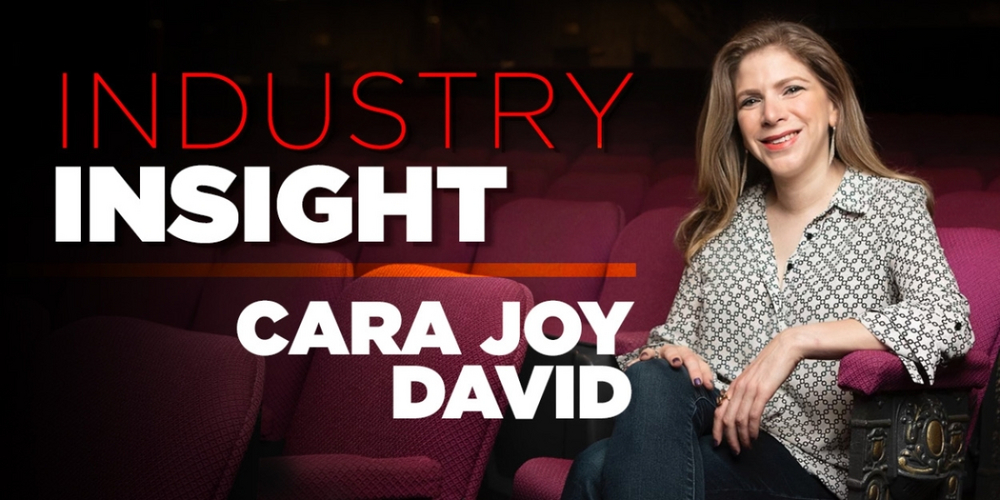Industry Editor Exclusive: The Complicated Relationship Between Actors' Equity Association and Spanish Language Theatre
Find out what is being done (and what isn't) to bridge the gap between AEA and the Spanish speaking community.
.jpeg) It is 2021, but some in the Spanish speaking community still feel like they are not properly represented by Actors' Equity Association (AEA). And they've been fighting for years. Strides were made at the delegate convention in late April, but there is still a distance to travel.
It is 2021, but some in the Spanish speaking community still feel like they are not properly represented by Actors' Equity Association (AEA). And they've been fighting for years. Strides were made at the delegate convention in late April, but there is still a distance to travel.
"AEA doesn't reach out or educate actors in the Spanish side of the business," Luis E. Mora, Artistic Director of Bilingual Broadway, told us.
This has been such a problem that it was included in the Black Theatre Matters Bill (crafters of which included Davon Williams, Maria Cristina Posada Slye and Mora) that was presented during the convention. Article III stated: "Drag Performers, Teaching Artists, Cruise Performers and Spanish Speaking Theatres deserve to be part of this union." This article, and its accompanying resolutions, passed at the convention. (The only article not to pass was Article II, which was labelled the "Education Act.")
This article struck many as strange. There are three ways to apply for membership to AEA and drag performers, teaching artists and cruise performers sometimes do not qualify in any of the traditional ways. But "Spanish Speaking Theatres" is different because there are Spanish speaking theatres that are Equity houses.
"It's not a matter of these theatres not being allowed, it's a matter of nobody organizing and no one keeping tabs on the work," Mora stated. "I describe it as the closet in everybody's house that has all the items that you don't wanna deal with, but you never get to it."
One of the big battle points for years (for citizens of all other countries) was whether a member could join regardless of citizenship status. "Until late January 2021 it was still the policy to separate people who did not hold a green card or citizenship (but had different valid work authorizations like the o1 visa) applying for membership into a 'nonresident alien' membership category," actress Jessica Wu explained. "[This] involved a process of reviewing every applicant and more than often either denying membership (and the accompanying contract) or putting people into a very restrictive (and detrimental) form of membership that involved such things as freezes of benefits when not currently on contract, not allowing them access to [Equity Principal Auditions] and [Equity Chorus Calls] while also preventing nonunion work..."
After Wu met with AEA Executive Director Mary McColl in January 2021, Wu explained that the policy of treating non-citizens differently was aborted. However, at the April convention a resolution (spearheaded by Wu) passed that would alter the underlying AEA documents to reflect this change.
But more work is still to be done. The Screen Actors Guild-American Federation of Television and Radio Artists (SAG-AFTRA) has an entire Spanish language website and contracts available in Spanish, AEA does not. An AEA spokesperson told BroadwayWorld that the union "is working to add Spanish-language resources to our website."
And only time will tell what the passage of the Black Theatre Matters Bill will mean in real life practice. AEA has never had an organizing committee dedicated to Spanish language theatres - according to an AEA spokesperson, the union has "a single Organizing Committee which guides our Council's decisions on all organizing matters, which includes ongoing discussions regarding Spanish-language theatres."
The Black Theatre Matters Bill included provisions requiring the union to make a "good faith effort to the organization of all Spanish speaking theatres," "commit to a bilingual approach in all aural and written correspondence to our potential bargaining partners specializing in Spanish speaking theatre or any theatre of the like that offers a bilingual option to its patrons" and "offer specialized collective bargaining agreements aimed at aiding in the growth and development of the Spanish speaking theatre community." What that all means in prolonged impact on the industry is still unknown -- these resolutions were only recently passed and many theatres do not even have staff back yet.
Many people spoken to are trying to think positively about the future, but are also scarred from the past. Right before the March on Broadway, actor Eddie Marrero came forward on Instagram to tell his story about how, 20 years ago, he went to AEA to complain that the show he was in, which performed certain performances in English and certain in Spanish, was only paying people AEA wages for the English-language performances. According to Marrero, his concerns were dismissed and he was not protected by his union. While an Equity spokesperson is quick to point out that today the union would treat performances in any language the same, one can understand how people still carry negative memories of prior occurrences with them as they enter into this new time. (In fact, the AEA convention itself was marred by accusations of racism, which led to a virtual walk out.)
There is also some dispute about what changes need to be made. Mora listed as a concern AEA not monitoring Spanish language theatres. An AEA spokesperson however countered that there was "no difference as to how Spanish/English theatres are treated in this regard" because AEA does not monitor any non-union theatres, but rather the AEA rules require AEA "members to work in acting or stage-management jobs in theatre only under the appropriate Equity contract" and that is true regardless of the language predominately spoken in the theatre.
Everyone is (at least surfacely) in agreement that more inclusivity will benefit the union and its members. How that happens and the time it takes to happen remain open questions.
Videos


